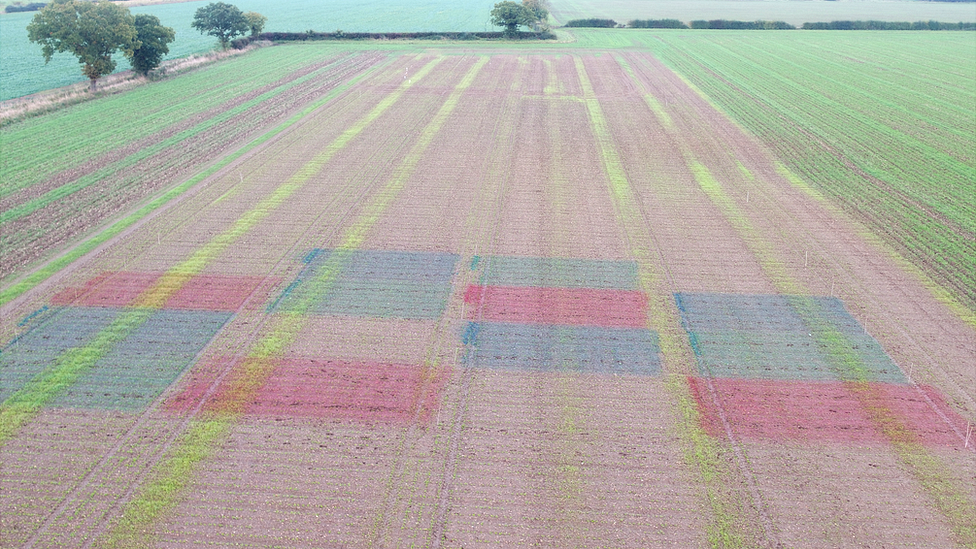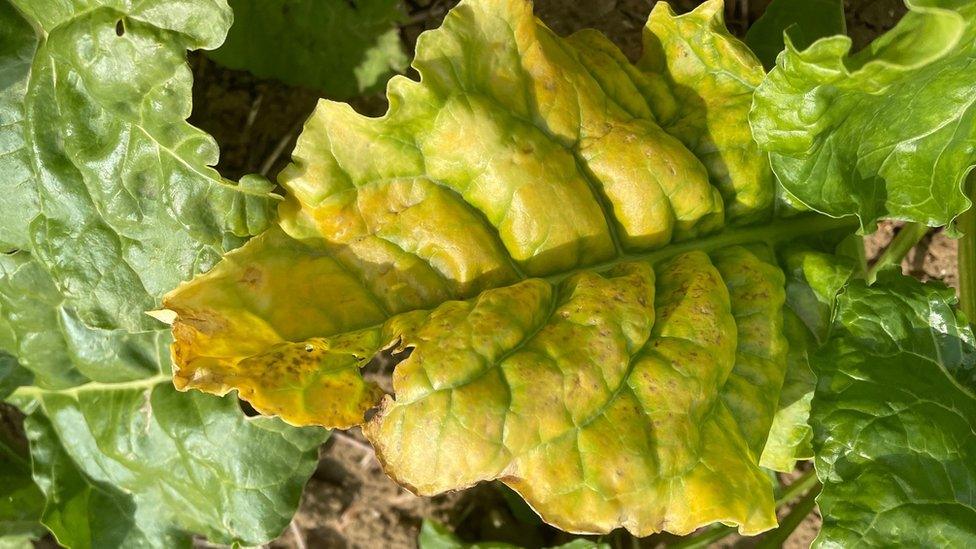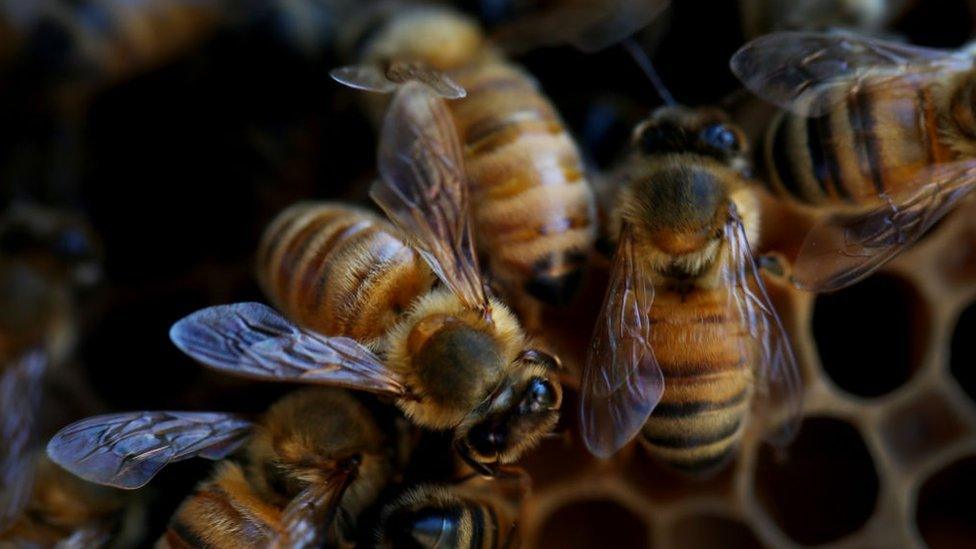Beet farm near Wymondham in colour-based aphid pest trial
- Published

The "camo-cropping" trial is aimed at preventing aphids harming sugar beet crops
Scientists hope patchworks of multi-coloured crops will help hide them "in plain sight" from pests as a natural alternative to pesticides.
Using dyes, the so-called "camo-cropping" trial has been started by the Norwich-based British Beet Research Organisation (BBRO).
It has been introduced at Morley Farms, near Wymondham, Norfolk, in an attempt to protect sugar beet from aphids.
Farmer David Jones said pests can "reduce yield by 50% in a bad year".

David Jones from the Morley Agricultural Foundation said aphids can badly affect the beet crop
Fields of sugar beet have been dyed different colours using food dye at the farm.
Scientists hope to find out if the camo-crops deter aphids from landing on the sugar beet and, if they do, which colours prove most effective.
Mr Jones, from the Morley Agricultural Foundation, external, said growing sugar beet was a "a challenge".
He said the farm has to cope with "lots of things all of the time, principally the weather, but also weeds, and particularly aphids come and attack the crops and transfer virus into the crop".
"We're always looking for new ways to control the problems we've got, if it's without pesticide [then] that can be beneficial to what we do," he said.

The aphids transfer disease to the sugar beet which can severely affect the crop
Dr Alistair Wright, from the BBRO, said had used "colour as a dye to reduce the contrast between the immature beet and the soil".
He said: "We're trying any approaches to deter the aphids from the crop and we know they use all sorts of senses when they are migrating in the spring.
"One of them is colour and the contrast between the plant and soil, so using the dye we are hoping to effectively hide the crops in plain sight form the aphids."
Dr Wright said there were "early positive signs" but added results would not be fully known until the harvest.

Dr Alistair Wright said the BBRO was trying various approaches to move away from pesticides
He said the organisation was also trialling other methods such as increasing ladybirds and planting a grass from New Zealand which releases chemicals that kill aphids.
"There's no silver bullet, no one thing we can rely on," Dr Wright added.

Find BBC News: East of England on Facebook, external, Instagram, external and Twitter, external. If you have a story suggestion email eastofenglandnews@bbc.co.uk, external
Related topics
- Published30 June 2022

- Published5 August 2021
